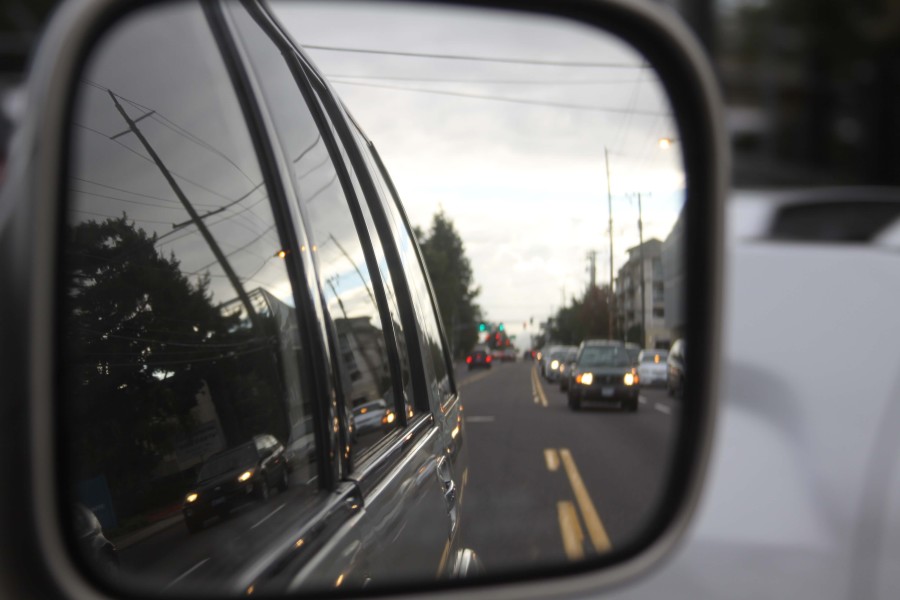Oslo’s Car Ban, and the Future of Commuting
November 10, 2015
Chances are, if you live in Portland, you like to bike to places. However, the coexistence of cyclists and drivers is, at times, uneasy. Now, imagine being able to walk and bike around the heart of the city without the worry of an accident. By 2019, that will become a reality in Oslo, the capital of Norway. As an avid sightseer of our own city, I fully advocate the integration of a similar plan in Portland.
Oslo’s municipal government has drafted a plan to eliminate personal vehicles from its city center within four years. Buses and trams will continue their services, as well as vehicles delivering goods to stores. The disabled will also have special accommodations, should it be needed. The concept was envisioned in an attempt to remove traffic congestion, cut pollution, and create a safer environment for pedestrians and cyclists.
The city is the first European capital to have a full ban on cars. Being densely populated, other European countries have made similar efforts in the past. For example, Paris banned all cars on September 27 in order to clear the thick smog that engulfed the city before, and allowed Parisians to enjoy the city without noise and air pollution. Copenhagen has also incorporated car free zones throughout the city, and Madrid plans to follow in Oslo’s footsteps, by eliminating all cars by 2020 from 500 acres of the city.
So why would you consider leaving cars behind? Numerous reasons make this tempting for governments. For one, cars are the most inefficient form of moving about a densely populated city. In cities with heavy activity, biking to your destination will often times help bypass traffic. In the time it takes to find a parking spot for one car, around 10 bikes could be parked. In the absence of cars, it becomes much safer for pedestrians and cyclists to travel about. Less traffic also means less carbon emissions, improving air quality for all in the area.
As a native Oregonian, I take great pride in the efforts that we and our government, municipal and state, take to keep Oregon a green state, in both senses of the phrase. With this “green” culture already in place, integration of this plan would most likely be widely accepted, and the benefits only support the validity of the plan. Since the 1980’s, Portland’s population has grown immensely, and consequently, more traffic with it. It may not be practical to do a citywide ban of cars, but it would certainly work in areas such as Portland’s Pearl District. In such areas, the streets are much narrower and walking or biking is much more efficient than driving a car, both in cost and time. It’s about time Portland took greater strides in improving environmental quality, and a plan such as this would be a massive step in that direction.
Several governments will certainly be following the progress of Oslo’s plan closely. Its environmental benefits are obvious, but its efficiency has yet to be tested. If the ban is a success, other major American and European cities will follow, such as London and New York City. It’s only a matter of time before countries cut down on car usage, and the success of Oslo’s ban will only hasten its arrival.






Hannah Kaufman • Jan 15, 2016 at 5:08 pm
I think that in some parts of the city it would be good to try and make it walking and biking only so we would have less congested areas, and would see if it made a difference in the emissions in the air to make it cleaner. Maybe making part of downtown car free would be a cool thing to try but not all of it so we could get things home.
A Person • Nov 12, 2015 at 2:37 pm
from the cars that enabled them to exist. In short, American cities need cars, European cities don’t; this would not work in Portland, however bike-friendly we think we are.
A Person • Nov 12, 2015 at 2:34 pm
I do not think this is a realistic sentiment. American cities (Portland) are vastly different form European cities. European cities are much older than their American counterparts, most having been founded loooooooooong before automobiles existed. Their layout and infrastructure is therefore infinatley better suited to a pedestrian/bicycle only policy than any American city. Most American cities are designed with automobiles in mind, and their layouts are not particularily bike-friendly. Shopping centers (unlike in most European cities, where shops, restaurants, and markets are often sprinkled throughout the city for easy access) are where everything happens, and are few and far between – not a realistic prospect for most cyclists, not to mention getting their groceries back (can you imagine biking your new flatscreen home?) Finally, suburbs and American cities are inseperable, like suburbs are inseperable